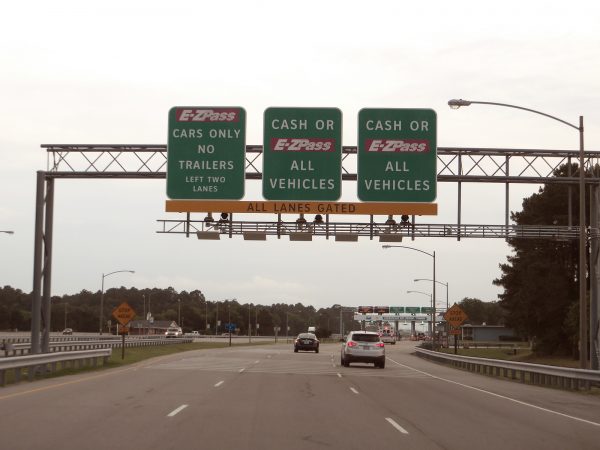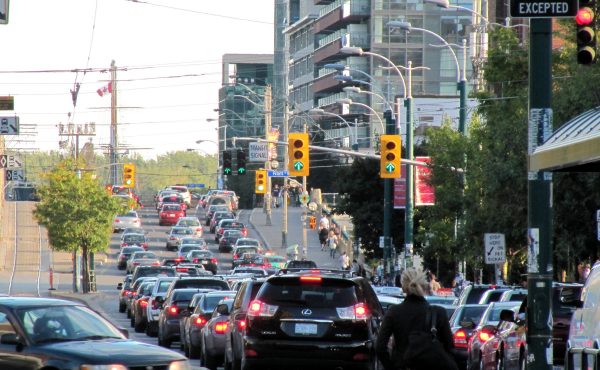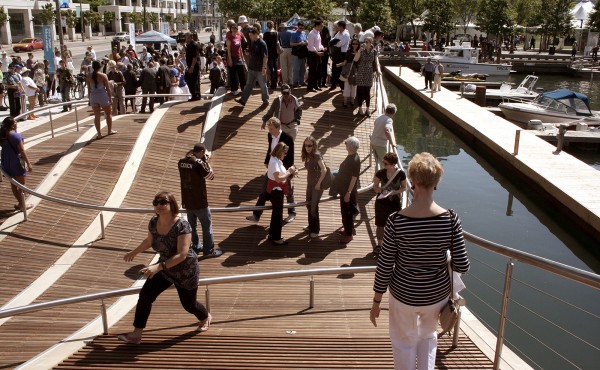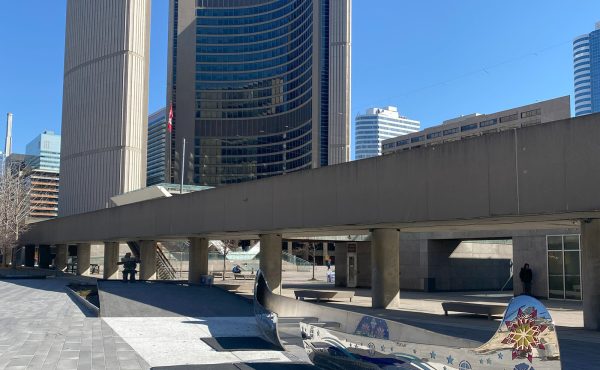How long do progressives and urban dwellers more generally have to wait before Ontario’s NDP stops compensating (atoning?) for former premier Bob Rae’s decision, circa the early 1990s, to slap tolls on Highway 407?
The question arose again late last week when Andrea Horwath’s populists stood shoulder to ideological shoulder with Patrick Brown’s Progressive Conservatives to support a symbolic motion calling on Kathleen Wynne’s government to reject the City of Toronto’s forthcoming request to put tolls on the Gardiner and the Don Valley Parkway.
I understand that opposition parties need to be, well, oppositional. But as happened in the last provincial election in 2014, Horwath revealed she’s got a tin ear when it comes to not just funding urban infrastructure but deploying green policies meant to change driver behaviour, reduce emissions, and spur transit use.
Instead of tabling a motion calling on the provincial government to, say, properly fund the operating costs of transit, toll all the 400-series highways or urge the Wynne Liberals to give the City of Toronto other revenue tools, such as sales tax, Team Horwath threw in their lot with a rurally-based party that has little interest in transit and scant purchase with urban voters.
Why? Shouldn’t progressive voters in big cities like Toronto be able to back an electoral option to the Liberals? Of course. Yet last week’s stunt — which, let’s face it, is what that motion amounted to — stands as a fairly crisp signal that the NDP isn’t interested in Toronto. I understand why the Tories don’t much care about the city, but the NDP’s indifference is much more difficult to grasp.
Horwath, however, has long demonstrated that she’s far more interested in going for the partisan solar plexus shot than advancing a coherent set of policies that suggest an ability to manage the province, its urban regions, and our collective environmental footprint.
On transit, she opposed Metrolinx’s 2013 revenue tools recommendations, backed by-election candidates who pandered to the delusional Scarborough subway politics, and offered up nothing more than a pledge to hike corporate taxes as a way of paying for infrastructure. As if.
Let’s not pretend, moreover, that the NDP-Tory motion is so much harmless parliamentary fluff. It’s actually a perfectly timed shot across the government’s bow.
The Wynne government fully understands that the residents of the mainly Liberal-held 905 ridings who commute downtown are crabby about the prospect of tolls that could jack their driving costs by over a grand a year. Mayor John Tory instigated the toll debate last month by strongly implying the premier was on side. But does Wynne actually have her caucus members whipped, or will she be vulnerable to the sort of U-turn politics we’ve seen so often on the transit file?
Tory has said that City of Toronto voters will decide, in 2018, whether tolls are an acceptable form of revenue to fund infrastructure. But Wynne, I’m guessing, knows she’ll face precisely the same judgment when she faces 905 voters in 2018 – you know, the ones who decide the outcome of elections.
With council embarking on what will likely be an emotional debate about revenue tools and the tolling request today, the posturing at the other end of University Avenue will surely be hovering over like a cloud of smog over City Hall. We all know which councillors have strong political ties to the Wynne government, and their stances on the toll debate will serve as leading indicators about the ultimate fate of the mayor’s big bold idea.
After all, the most important detail in the motion that will dominate this week’s council session is that the province be requested to move ahead with legislative changes to allow tolls (and a hotel tax) in 2017.
Her eye on that clock, Horwath last week showed that she understands how to press an election-minded partisan advantage, policy coherence be damned. I’d say it’s entirely possible the politics up at the Pink Palace could not only derail Tory’s half-a-loaf revenue scheme, but also lay the groundwork for the 2018 race province-wide.
So, as council lumbers uneasily into next year’s wrenching discussion about revenue tools, the NDP could be choosing to push the Wynne government to make its approval of tolls contingent on other policy or revenue moves meant to appeal to Toronto voters and mitigate their pain – such as absorbing the costly operating costs of the new Metrolinx LRT lines instead of downloading them to Toronto commuters.
But with their motion last week, the NDP decided not to pursue that path. They instead decided to position themselves, on a crucial file, as little more than Tories with a different colour palette.
Suffice it to say that colour isn’t green.






7 comments
I don’t disagree with your comments, especially as they relate to the NDP policy platform during the last election, but Andrea Horwath “called on the provincial government to restore funding for operating costs for municipal transit.”, while also noting the regressive nature of both road tolls and transit fares. The details on how the province would pay for that funding wasn’t part of that call, but at least it’s a step in the right direction.
The NDP’s lack of a consistent urban policy and a failure to support rational transit planning in Toronto has certainly contributed to their lack of electoral success.
There are toll highways throughout Maine and Massachusetts and no one gives it any thought. The UK has tolls, as do many other countries so why Horvath would consider them regressive is beyond me.
Her completely cluelessness when it comes to transit and infrastructure will continue keeping the Ontario NDP in third place.
Quite obvoiusly you don’t understand taxation and it effects transportation and roads. The users of the roads are already over paying for the development and upkeep of all the roads in ontario. A driver pays yearly $120 road tax as well as gasoline taxes every time the tank gets filled. Sadly this money gets funneled into general revenue rather than paying for roads which it was originally deemed for. To say that drivers should pay more as the cost of the roads are not properly covered is ludicrous.
I dont live in Toronto and do not use any of the TTC services. I live in Oakville and our bus costs almost double what the TTC charges. How about the users of these services pay for the actual cost and cover the expansion that they desire. Why should this be put onto the backs of the driver who is not driving in rush hour causing the traffic problems your mayor wants to stop.
@Christopher Most toll roads in the States are long-distance turnpikes or urban bypasses (a la the 407). Tolling every 400-series highway, even just in the GTA, would force ungodly amounts of commuter traffic onto municipal roads and download a traffic armageddon onto municipalities. Just check out traffic along Highway 7 in Vaughan on a weekday for what that looks like.
Matt says: “Quite obvoiusly you don’t understand taxation and it effects transportation and roads. The users of the roads are already over paying for the development and upkeep of all the roads in ontario.”
That comment goes right back at you. Drivers are WAAAAAAAAAY more subsidized than you realize. Gas tax, plate & license fees, etc. do not even come close to covering the costs of maintenance of our highways and roads. I cannot begin to tell you how wrong you are. Since you provided no facts, I thought I’d help you:
https://www.theatlantic.com/business/archive/2015/10/driving-true-costs/412237/
or
http://cityobservatory.org/theres-no-such-thing-as-a-free-way/
So there was a salient quote in the Globe of Jan. 10, 1996 that I’ve shared at City Wall over the last two decades, especially at budget time. “We realized that the public subsidy enjoyed by the private automobile amounts to $2,700 per automobile per year, or about seven times the amount we subsidize public transit,” said Ken Cameron, the region’s senior planner. Here in Caronto, Ontcario, we have caronic denial and clear catering to the votorists ie. once again, no Vehicle Registration Tax not brought to you by carservatives, who are false conservatives, happy to keep entitlements. And so it is unusual to have the Liberals being a bit more honest/brave with mobility politricks, and while the Conservatives can be expected to be ‘out’ there, including filling in Eglinton 20-ish years ago, the NDP are somewhat surprising, but not totally. A staunch NDPer, Mr. Joe Pantalone would express the correct theory about transit first in North York or somewheres, but in his own turf, it was a massive road project to foul up budgets and transit that he supported. His followers, Gord Perks and Mike Layton, while on the Atmospheric Fund and doing all sorts of Green things, are also now supporting a road in the Liberty Village area, with no transit, and it seems no transit vision except weaker options somewhat denigrated in that 1992 WWLRT EA. But that’s truly ancient history; not digitized – so it doesn’t exist and isn’t relevant. And if Gord and Mike did try to do the more-correct things in their areas, odds are very high it’d be sabotaged and shot down by the overall Clowncil, so low have we sunk.
For another reference on avoided costs etc., see vtpi.org and the latest ECO’s climate report has transportation as yet again a salient sector, so one has to presume Ms. Horwath likes climate change. And why shouldn’t the road grid have some cost like the electricity grid? Especially on the limited access ‘freeways’?
Back when I used to be a party member, I read Andrea Horwath’s resume and voted for her as party leader based on the idea that she might actually be a progressive, social democrat minded person Ever since then she has served up nothing but populist nonsense. I wondered if it was Andrea or the backroom boys and girl who were pushing these ideas.
Now, I have given up. I am no longer a member of the party and no longer give generously. I no longer vote NDP – after 35 years or so of consistent support. Even the marginally intelligent “W” knew that to be a successful politician one has to protect one’s base. Who does the NDP expect to get to vote for them? Not the populists who support Brown, not the urban progressives, not a large portion of the old base and certainly – not me.